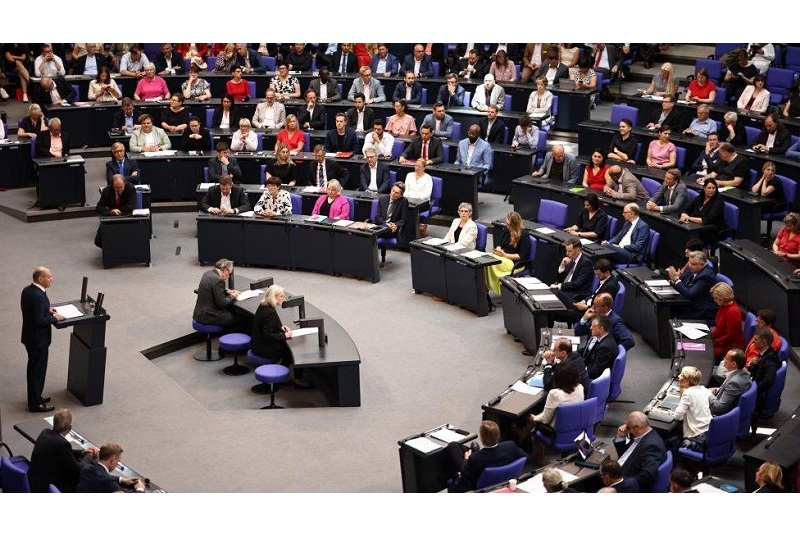
germany passes a law to attract skilled immigrants report
The German parliament passed a radical new law to entice migrant workers to Germany, while other nations are attempting to restrict immigration.
For migrant workers from outside the European Union, this means less bureaucracy and fewer obstacles.
Age, skills, qualifications, and any ties to Germany will all be taken into account under a points-based system a la Canada.
The requirements for salary, educational attainment, and German language proficiency will be lowered.
This would make it simpler for immigrants to enter Germany, whether they have a job offer or not. The ability to bring parents as well as a spouse and kids is one of the incentives.
This marks a significant policy change for Germany. German governments have resisted the notion that their nation is one of immigration for many years.
When the first generation of Turkish “guest workers” arrived in the 1960s, they were treated as temporary “guests” who would contribute to the economy before departing.
Despite the fact that German society is becoming more diverse, conservative-led governments, including Angela Merkel’s administration, struggled with the idea of a society open to migrant workers. In Germany, more than 25 percent of people are either foreign-born or have at least one parent who is.
German business leaders are raising the alarm about a labour shortage after years of low unemployment. The issue is made worse by an ageing population because baby boomers born in the 1960s will soon begin retiring.
Keep Reading
Ministers express concern that there are already millions of unfilled positions and cite the labour shortage as the biggest threat to the German economy.
A key component of the new SPD-Green-liberal coalition’s platform after Olaf Scholz’s center-left Social Democrat SPD party defeated Angela Merkel’s conservatives in 2021 was loosening immigration regulations.
Arguments over climate change policies between the Greens and the liberals who support business have plagued this coalition. However, both parties do concur on immigration: the liberals want workers for the economy, while the greens favour stronger human rights protections in immigration law.
Germany will relax entry requirements for qualified workers
However, the parliamentary discussion of the law on Friday was vehement. Conservatives opposed the legislation because they were outraged that the new law would enable some already-residing rejected asylum seekers to find employment.
The far-right AfD also abstained, expressing its party’s growing nativist view of what it means to be German by arguing that Germany was not a country of “immigration” but rather a “homeland.”
The AfD does not represent the opinion of the general public that Germany needs migrant labour. But despite this, or perhaps because of it, the party is polling at previously unheard-of levels.
The party scored the highest ever in the most recent ARD Deutschland Trend poll, reaching 19% this past week. The SPD party of Chancellor Olaf Scholz has fallen to 17%.
When it comes to immigration, the political climate in Germany is polarised and tense. The parliament has just voted in favour of it, the government wants it, and the economy needs it. Will however all voters endorse it?









